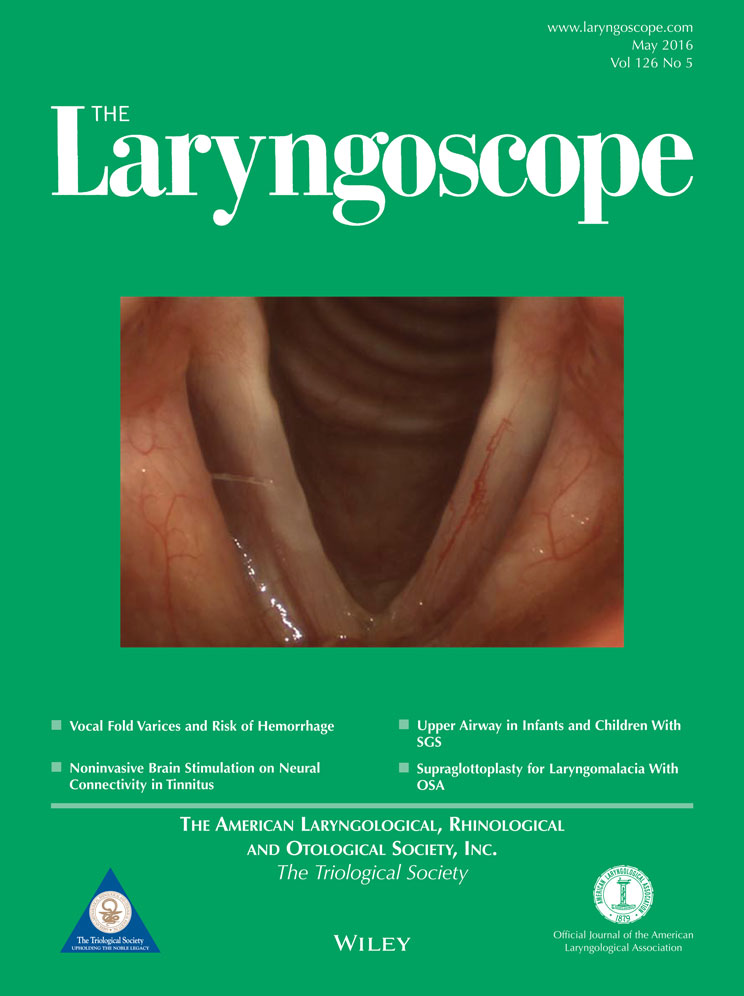The relationship between fiberoptic endoscopic evaluation of swallowing outcome and symptoms of anxiety and depression in dysphagic patients
This work was conducted at the Department of Otorhinolaryngology, Head and Neck Surgery, Maastricht University Medical Center, Maastricht, the Netherlands.
The authors have no funding, financial relationships, or conflicts of interest to disclose.
Abstract
Objectives/Hypothesis
Affective complaints are involved in bothersome oropharyngeal dysphagia (OD). The aim was to determine the relationship between the severity of OD and affective symptoms.
Study Design
Prospective cohort study.
Methods
One hundred seven patients underwent a standardized examination protocol including the Hospital Anxiety and Depression Scale and fiberoptic endoscopic evaluation of swallowing (FEES). Two observers independently assessed patient performance on four ordinal FEES-variables (for thin and thick liquid consistency, blindly assessed). The relationship between FEES outcome and the presence of clinically relevant symptoms of anxiety and depression was analyzed using binary logistic regression.
Results
Significant associations were found between clinically relevant symptoms of anxiety and two variables: piecemeal deglutition (thin liquid consistency only) (P = .026) and postswallow vallecular pooling (thick liquid consistency only) (P = .015). The probability of presenting with anxiety symptoms decreased as the severity of piecemeal deglutition and postswallow vallecular pooling increased. No significant association was found between clinically relevant symptoms of depression and any specific FEES variable.
Conclusions
These data revealed few associations between anxiety symptoms and the measured FEES variables. However, the more severe the score on FEES variables, the less important the affective complaints were. Anxiety seems to play a role in OD, but no causal relationship was found, commensurate with a cross-sectional study design. The contribution of affective symptoms to the development and treatment of OD warrants longitudinal research.
Level of Evidence
2b Laryngoscope, 126:E199–E207, 2016




